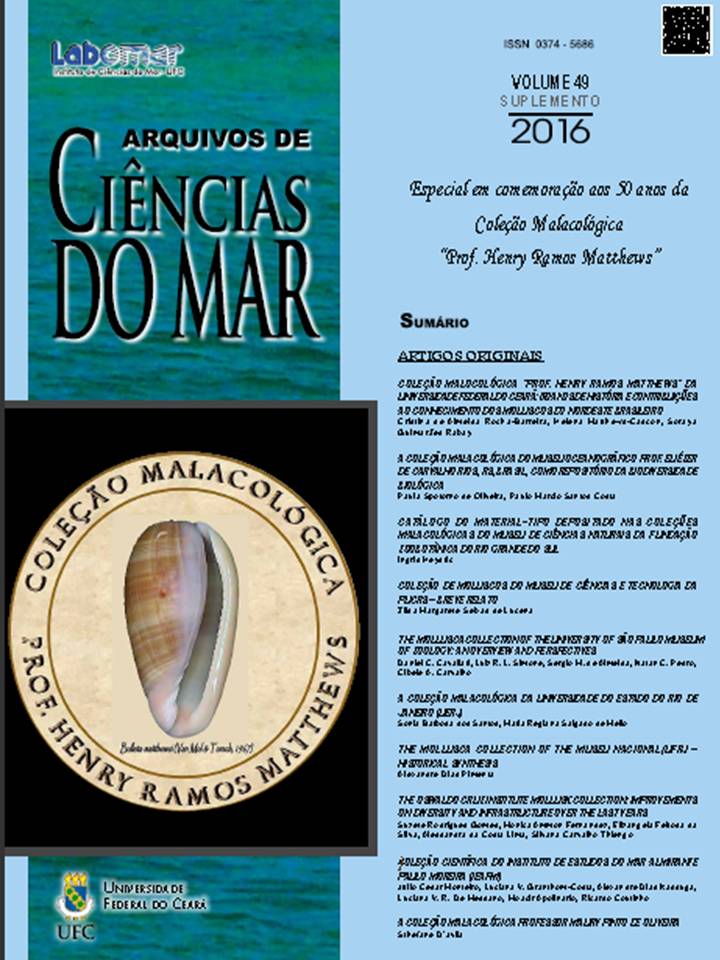The Malacological Collection of the University of the State of Rio de Janeiro (UERJ)
DOI:
https://doi.org/10.32360/acmar.v49i0.6126Keywords:
mollusk collection, scientific collection, MolluscaAbstract
This paper deals with the state-of-the-art of the Malacological Collection of the State University of Rio de Janeiro (Col. Mol. UERJ). Created in 1986, the collection has grown following the researches developed by the Laboratory of Malacology. The collection show 11,103 lots deposited at the time, totaling more than 98,000 specimens, considering shells, soft tissue and tissue samples for molecular biology. It is recognized since 2004 as a faithful depository by the Ministry of Environment (MMA). It is now in the process of formal institutionalization by UERJ. Gastropoda and Bivalvia are the best represented classes, corresponding to 99% of the collection. We can conclude that it is a systematic collection, as it is not restricted to be used only by the researcher and students involved; it is a collection of research because it growth reflects the activities carried out by the teacher/researcher; it is a collection of reference, because it houses representative samples of a set of species from a region, as is the case of Ilha Grande, in addition to samples from projects, and to provide support to ecological projects that require identification of specimens.Downloads
Published
2017-02-13
Issue
Section
Artigos originais
License
1. Proposta de Política para Periódicos de Acesso Livre
Autores que publicam nesta revista concordam com os seguintes termos:
- Autores mantém os direitos autorais e concedem à revista o direito de primeira publicação, com o trabalho simultaneamente licenciado sob a Licença Creative Commons Attribution que permite o compartilhamento do trabalho com reconhecimento da autoria e publicação inicial nesta revista.
- Autores têm autorização para assumir contratos adicionais separadamente, para distribuição não-exclusiva da versão do trabalho publicada nesta revista (ex.: publicar em repositório institucional ou como capítulo de livro), com reconhecimento de autoria e publicação inicial nesta revista.
- Autores têm permissão e são estimulados a publicar e distribuir seu trabalho online (ex.: em repositórios institucionais ou na sua página pessoal) a qualquer ponto antes ou durante o processo editorial, já que isso pode gerar alterações produtivas, bem como aumentar o impacto e a citação do trabalho publicado (Veja O Efeito do Acesso Livre).

